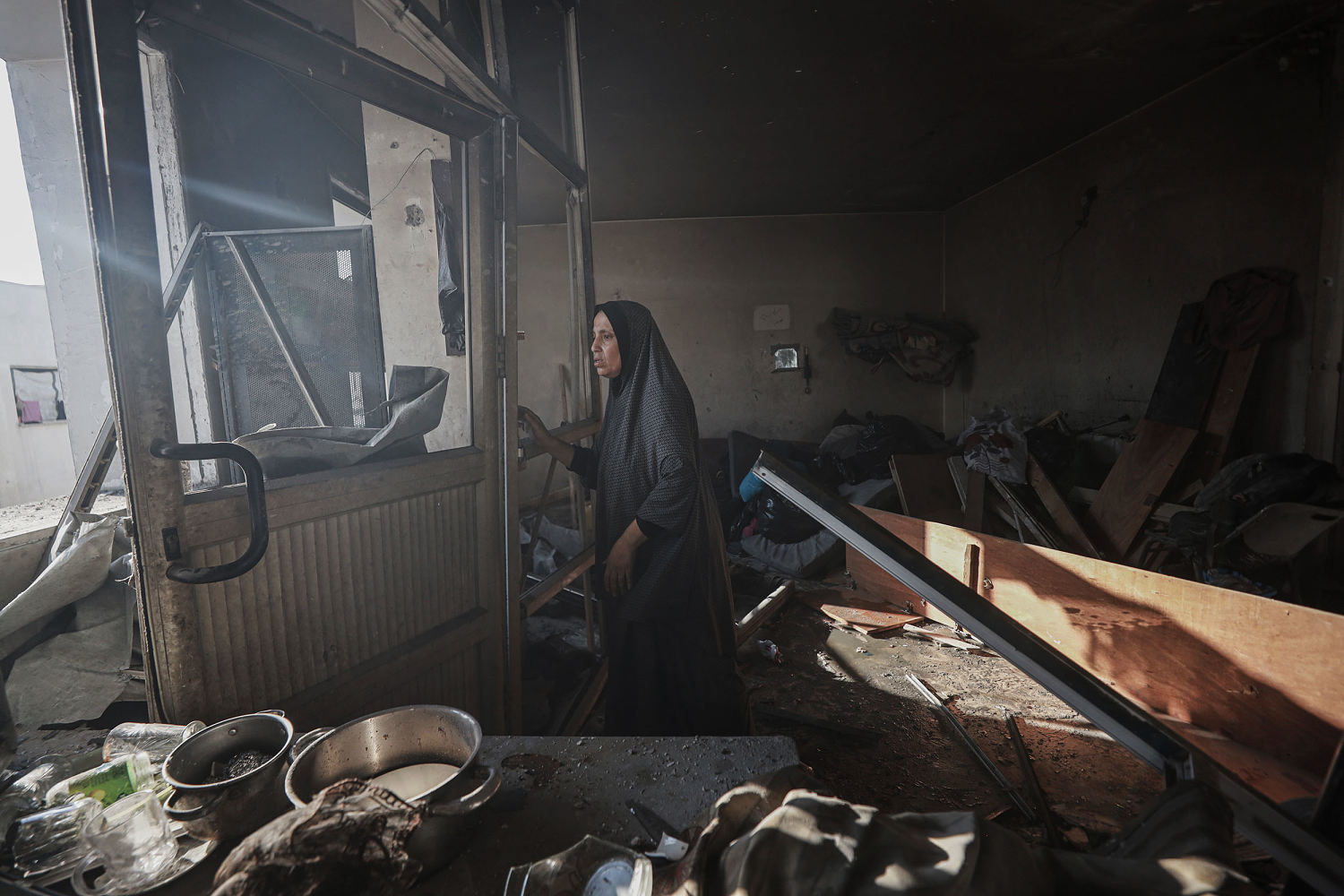
Under international humanitarian law, it is prohibited to launch an attack that could cause any loss of civilian life, injury to civilians or damage to civilian objects considered to be disproportional to the direct military advantage anticipated, according to the British Red Cross.
“There is evidence that the Israeli military has been tolerating up to 20 civilians dead to target a single ordinary Hamas fighter,” said Kenneth Roth, a prominent human rights activist and former executive director of Human Rights Watch, referring to a New York Times report citing a 2023 Israeli military order that gave officers such authority when pursuing Hamas militants in Gaza. “No reasonable observer would consider that a proportionate cost.”
“Even an attack on a military target can be a war crime if the anticipated civilian cost is disproportionate,” Roth noted.
When asked to comment, the IDF referred NBC News to its original response to the Times report, saying the Israeli military remained “committed to the rule of law.”
Throughout the war, the Israeli military has often released only limited information on many of its strikes, including those that caused high civilian death tolls, making it difficult to ascertain where those attacks fall under rules of proportionality.
In the case of its July 10 attack, the IDF has yet to conclude its probe — and it also has yet to publicly identify the Hamas member its forces were allegedly targeting or provide any clear outline of steps it took to avoid impacting civilians before launching the strike. Asked Monday for an update on its probe and to respond to concerns around proportionality over the deadly toll of the strike, the IDF said it would get back on the matter but had yet to provide a response as of Wednesday morning.
“International humanitarian law requires an attacker to use all feasible means to avoid civilian casualties,” Roth said. “That includes selecting the time of day when civilians are least likely to be harmed and weaponry that can achieve a military objective while minimizing civilian harm.”
Pointing to a recent attack in which dozens of people were killed and injured at a seaside cafe in Gaza City, he said it felt “likely” Israeli forces had “violated the duty to take all feasible precautions to spare civilians from an attack.”
Matthew Savill, the director of military sciences at the London-based Royal United Services Institute think tank, said in an email that “the controversy over IDF operations comes from a couple of key areas: how they choose targets and then extent to which they are prepared to accept civilian casualties.”
“Some claims about their Rules of Engagement say that they have a very broad categorisation of what they are allowed to treat as a military target,” he said. “In other cases the Israelis have launched strikes, often air attacks, which seem to have killed a large number of civilians alongside their legitimate target. That doesn’t mean those attacks breached” international humanitarian law, “but it does mean the IDF should justify the large number of casualties in terms of showing they were proportionate compared to the target being attacked.”
James Sweeney, a professor of international law at the U.K.-based Lancaster University, said in a phone interview that it was typically “good practice to keep a detailed log of the decision-making process that goes into any particular attack.”
Referring to the strike outside the Project Hope clinic, he said, “I would imagine that one exists. As to whether it will ever see the light of day, I wouldn’t be so sure.”
A deadly campaign
Israel launched its assault on the Gaza Strip following the Hamas-led Oct. 7, 2023, attacks in which 1,200 people were killed and around 250 taken hostage, marking a major escalation in a decadeslong conflict.
Since then, more than 57,000 people have been killed in the Gaza Strip, including thousands of children, while tens of thousands of others have been injured, according to Palestinian health authorities, and much of the enclave has been destroyed.
The Israeli military and government officials have repeatedly accused Hamas of exploiting civilian sites, including hospitals and schools, as a cover for its operations, an accusation that health officials and Hamas have denied.
Kobi Michael, a senior researcher at two Israeli think tanks, the Institute for National Security Studies and Misgav, has typically defended Israel’s campaign in Gaza. He said in a phone interview that it was evident the Israeli military did take “some risks” when it comes to “collateral damage” when the “importance of a Hamas target is very high.” In other cases, he said, there were “unfortunately some mistakes.”
